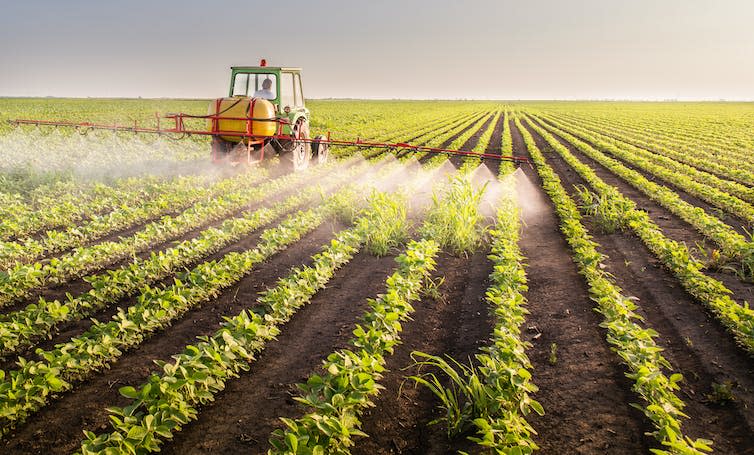The European Commission launched a proposal in July 2023 to liberalize a large number of plants produced using new genetic techniques.
Despite extraordinary attempts by the Spanish presidency to achieve a breakthrough, EU members have yet to reach a consensus on this plan. But if the proposal is approved, these plants would be treated in the same way as conventional plants, eliminating the need for safety testing and labeling of genetically modified food products.
European public opinion has refused to blindly accept genetically modified foods from the moment the technology was developed, largely due to concerns about corporate control, health and the environment.
Biotechnology companies have been trying to sell genetically modified products to Europeans for decades. But most European citizens believe that crops produced with both old and new genetic techniques should be tested and labeled.
So where did this offer come from? Biotechnology companies appear to have succeeded in convincing the European Commission that we need new genetically modified crops to combat climate change. They suggest that by increasing crops’ resilience to drought or improving their ability to capture carbon, climate change may no longer seem so scary.
If this seems too good to be true, unfortunately it is. Biotechnology companies are taking advantage of growing concerns about climate change to influence the European Commission with an organized lobbying campaign.

Climate targets as a public relations strategy
In 2018, the European Court ruled that plants produced with new genetic techniques should be regulated like other genetically modified organisms. Biotech firms and their allies in biotech research centers have since set out to convince the European Commission of the need for completely new legislation.
The first step was to rebrand the techniques they used, in an attempt to move away from the bad reputation of genetic modification. Biotech companies have instead started using more innocent terms like gene editing and precision breeding.
They then argued that the processes were not that different from what happens in nature and presented them as an improved version of natural processes. Biotechnology companies need this argument to eliminate the labeling requirement, which creates an obstacle to selling their products in an environment of public disapproval.
In a third step, they used the urgency of the climate crisis to argue that we cannot afford time-consuming safety testing. They argued that such testing would hinder innovation at a time when climate change is accelerating.
This approach has several flaws. The terms “gene editing” or “precision breeding” may sound more reassuring, but we argue that these are essentially marketing terms and say nothing about the accuracy of the techniques used or their potential adverse effects.
Research has shown that new genetic techniques can change a breed’s traits “to an extent that would be impossible, or at least very unlikely, using conventional breeding.” They can also trigger significant, undesirable changes in the genetic material of plants.
But perhaps most importantly, genetically modified plants are not the solution to the climate crisis. These are wrong solutions based on the wrong question.
false promises
It is well known that our current agricultural model contributes significantly to climate change. The development of genetically modified crops is being driven largely by the same agrochemical giants that founded and control this form of agriculture.
Companies such as Corteva and Bayer (which acquired US pesticide company Monsanto in 2018) are leading the race to obtain patents on new genetic techniques and their products.
Typical examples include patents for soybeans with increased protein content, waxy corn, or herbicide-tolerant rice. These crops were designed for an agricultural model focused on large-scale cultivation of monocrop varieties for the global market.
This farming model relies on staggering amounts of fuel for distribution, leaving farmers dependent on heavy machinery and farm inputs derived from fossil fuels (like artificial fertilizers and pesticides).
Research has found that farming this way causes soil depletion and biodiversity loss. It also increases susceptibility to pests and diseases, requiring the development of different and potentially more toxic pesticides and herbicides.
Although biotech firms are playing the climate card, only a small fraction of the genetically modified crops developed deal with climate concerns. In fact, the climatic characteristics of many of these crops are questionable. Changes such as extending shelf life or better withstanding transportation are only meant to make our unsustainable food system easier to operate.
Instead of reinforcing our unsustainable agricultural model, we should focus on restoring what industrial agriculture is destroying: farmers’ livelihoods, biodiversity and soil health. Only then will farmers be able to cultivate local climates that naturally store carbon and provide optimal conditions for food production without putting too much pressure on the environment.


pay the price
Biotechnology companies defend the no-testing policy because they argue that new genetically modified crops will be safe. But there is a problem. The legislation proposed by the European Commission eliminates the possibility of finding out whether these claims are true.
Health and environmental problems are often the result of complex, interacting and largely invisible causes. Since monitoring and labeling would not be mandatory, any negative consequences would be very difficult to trace back to their causes.
When untested genetically modified crops penetrate our environment and food chain, people and the planet will ultimately pay the price.
In response to this article, a spokesperson for the American Seed Trade Association said plant breeders need all the tools at their disposal to provide farmers with improved plant varieties so they can continue production in a challenging environment. The association said there is consensus among plant breeders and regulatory bodies that innovative techniques such as genome editing can be safely integrated into breeding programs to develop plant varieties that are indistinguishable from those developed through traditional breeding. Bayer and Corteva were contacted for comment on the issues raised in this article, but no comment was provided at the time of publication.


Don’t have time to read as much as you’d like about climate change?
Get a weekly digest in your inbox instead. Every Wednesday, The Conversation’s environment editor writes Imagine, a short email that digs a little deeper into a single climate issue. Join over 20,000 readers who have subscribed so far.
This article is republished from The Conversation under a Creative Commons license. Read the original article.


The authors do not work for, consult, own shares in, or receive funding from any company or organization that would benefit from this article, and have disclosed no relevant affiliations beyond their academic duties.